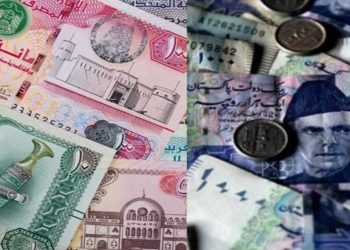Last week may foreshadow mayhem in the lands of Pharaohs once again. They have been several protests against President Abdel Fattah el-Sisi widely seen as Hosni Mubarak’s replacement. He came to power after Mohammad Morsi, the first and only democratically elected leader was overthrown. Since then Sisi has ruled with an iron grip.
The Arab Spring that brought down many Middle East dictators was seen as a failure in Egypt. It may have led to the downfall of longtime dictator Mubarak, but there was no regime change and brutal state repression continued. In such circumstances, it was expected that there would eventually be another Egyptian uprising.
Demonstrations under Sisi have been rare but the chants and protests across the nation were similar to those at the symbolic Tahrir Square in 2011. The latest protests are instigated by Mohammed Ali, a self-exiled former military contractor, who released videos of alleged corruption and lavish spending by the president and his family.
The Egyptian military tried to discredit Ali but all efforts failed. He was then branded a sympathiser of the outlawed Muslim Brotherhood. Later Sisi acted defensively and appeared to confirm the lavish lifestyle in the presidential palace launching an enquiry. Then the state responded in the way it knows best; by resorting to mass arrests and a clampdown on all protests.
The state-owned media first denied that any protest had even taken place, but over a thousand people including several high-profile individuals have been arrested. Many are in custody for using social media for spreading fake news. More protests are expected this week calling for an ouster of Sisi.
The protests are meaningful even if they are small and disorganised. Protests were banned in 2013 after security forces cracked down on a sit-in of anti-coup protestors and killed scores of people. It is difficult to dismiss the current protest as insignificant given the brutality and element of fear under the Sisi regime in place.
Egyptians have been dissatisfied with Sisi’s rule and freedoms are far fewer than even under Mubarak. The president has failed to hold independent polls in Egypt and the economic situation has worsened. According to a report, one-third of the population lives in poverty but the rate could be much higher.
Egypt has failed to build its economy and authorities have waged a sweeping crackdown on dissent. The country also faces a crumbling infrastructure and a worsening water crisis. In the face of poverty, reports of corruption and political mismanagement have compelled ordinary Egyptians to protest.
The protests might signal the beginning of the end of Sisi’s rule, regardless of how things turn out in the future pressure is expected to mount in the coming days. If protests continue to grow in size and numbers, the military might be forced to intervene and remove the president. However, Sisi has friends in the Middle East and these countries will ensure that protests do not get out of control.
One can’t help but wonder how Egyptians who aspire for democracy and freedom will overcome a repressive state. For a country that has seen thousands of years of authoritarian systems from pharaohs, kings and dictators, this may be wishful thinking.




























